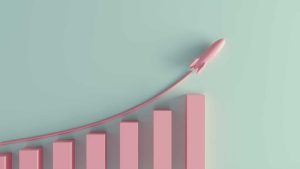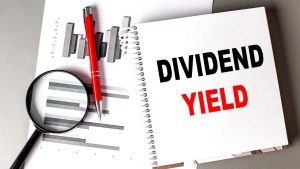As the Next share price dips on H1 results, is it a chance to buy?


The Next (LSE: NXT) share price dipped 5% early Thursday (18 September), even though solid first-half results came in largely as expected.
The company sounded a few notes of caution, however, and that seems to lie behind the market’s lack of enthusiasm.
The group saw total product sales, UK plus international, rising 12.5% compared to the first half last year. UK online sales outstripped in-store sales by three to one. But store sales still gained 3.7%, so maybe bricks-and-mortar isn’t dead after all.
Total group revenue rose 10%, with statutory profit before tax up 17.8% to £509m. The company declared an interim dividend of 87p per share, up 16% from last year. Its £470m in share buybacks over the year should help boost per-share measures.
This all sounds positive, but Next didn’t upgrade its full-year outlook. It kept full-price sales guidance at £5.4bn, up 7.5%, with profit before tax up 9.3% at £1.1bn.
I tend to see a company reiterating its upbeat full-year expectations as a good thing. But warnings about the UK economic outlook took the shine off it.
Reasons to be cautious
The report suggested we should temper our enthusiasm about this strong first half. It was, the company said, boosted by “favourable weather and competitor disruption.“
The update added: “The medium to long-term outlook for the UK economy does not look favourable.” What might go wrong? Take your pick from “declining job opportunities, new regulation that erodes competitiveness, government spending commitments that are beyond its means, and a rising tax burden that undermines national productivity.“
I guess that makes a refreshing change from so many companies that go out of their way to paint their futures as being as rosy as possible. And I think the Next board has had its fingers firmly on the pulse of the UK retail economy better than most for years. The directors are the people worth listening to.
Buy or avoid?
Still, I’ve always liked companies that underpromise and overdeliver. And Next has an impressive track record of doing just that. It’s important to avoid being too enthusiastic about companies we like and failing to fully appreciate their challenges. But I still put Next among those most likely to continue to lead this sector in the coming years.
The question for me is whether there’s sufficient safety margin in today’s valuation to justify the current Next share price. Forecasts — which were already essentially in line with the restated company guidance — put the forward price-to-earnings (P/E) ratio at 17. And by 2027, if they’re right it could come down, but only as far as 15.
In better economic times, I’d see that as fine. And I do think investors should consider buying Next as a leader in its business.
But I also suspect it might be wise to hold off considering the sector as a whole, and waiting to see how the whole fashion retail business copes with the next few years.
Me? I’ve often been tempted by Next. But I’ll wait until we see how the second half goes.
The post As the Next share price dips on H1 results, is it a chance to buy? appeared first on The Motley Fool UK.
Should you invest £1,000 in Next Plc right now?
When investing expert Mark Rogers has a stock tip, it can pay to listen. After all, the flagship Motley Fool Share Advisor newsletter he has run for nearly a decade has provided thousands of paying members with top stock recommendations from the UK and US markets.
And right now, Mark thinks there are 6 standout stocks that investors should consider buying. Want to see if Next Plc made the list?
More reading
- How much do you need to invest in UK shares to aim for a million?
- Will this FTSE 100 stock crash in September?
- Down 7% from June, are Next shares a bargain?
Alan Oscroft has no position in any of the shares mentioned. The Motley Fool UK has no position in any of the shares mentioned. Views expressed on the companies mentioned in this article are those of the writer and therefore may differ from the official recommendations we make in our subscription services such as Share Advisor, Hidden Winners and Pro. Here at The Motley Fool we believe that considering a diverse range of insights makes us better investors.





